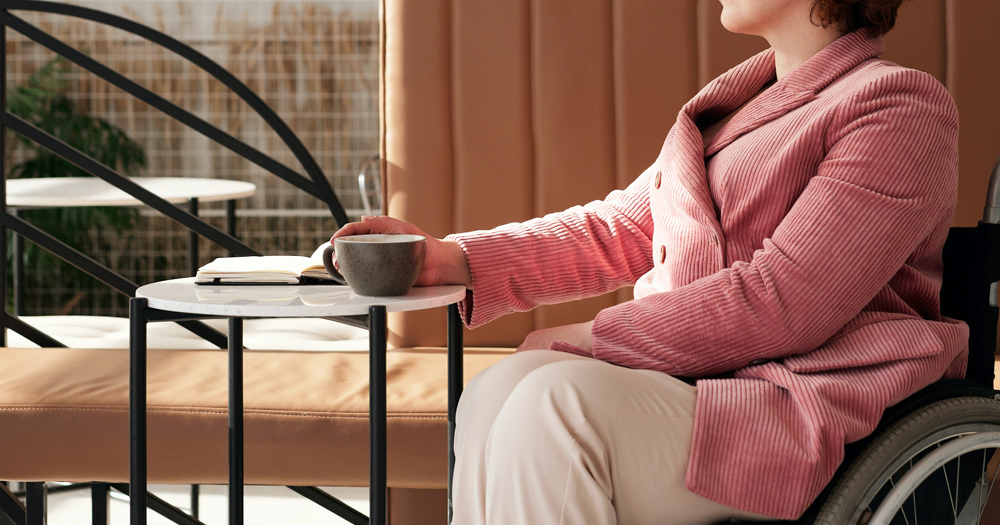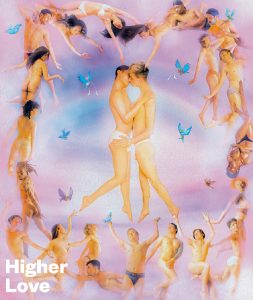Author Alannah Murray speaks about ableism in the Irish queer community and the accessibility of LGBTQ+ spaces.
There is an unwillingness from LGBTQ+ people at large to engage with disabled people, and it’s unacceptable. It’s funny because a majority of disabled people I know and would hang around with are part of the newly dubbed “alphabet mafia”; but there is a disconnect from non-disabled people between my disabled identity and my queer identity. They see them as separate, which presents unique challenges in terms of accessible spaces, dating and my experience of what it means to be disabled and queer in Ireland.
It took me quite a while before I was able to fully accept myself, and honestly? I’m still on that journey. After I got over the internalised feelings that I had surrounding being bisexual, I had to ask myself how that intersected with my disabled identity and where I fit within the community. So, like every baby gay, I went looking for my community.
I had lived outside the bubble of urban gays and, as such, didn’t meet another out gay person until college. Even then, the gay scene there wasn’t exactly inspiring confidence. Once I started going out in the city, I understood why.
Dublin, the metropolis of gay activity I had hoped for, was completely inaccessible. Any research I had done into club nights, and emails sent were met with a sympathetic response that they didn’t have any accessibility; I was effectively locked out of my community that I was craving. There have been many articles written on the topic, and lord knows I don’t shut up about it, yet it doesn’t change. Why?
It’s time to get real about non-disabled people’s attitude to disabled people; apathetic at best, ignorant and harmful at worst. The excuse of “I never considered it” simply will not work anymore. Disabled people have been vocal about inaccessibility and inequity of access; the onus is on non-disabled people to listen.
That’s not to say all non-disabled people are terrible, they’re not. I’ve had some particularly enjoyable and incredibly memorable experiences, but all of them have centred my disability before my queerness.
If you thought Tinder and Grindr were tough as a non-disabled gay, you have no clue of the interactions I’ve had. Often, the questions are crude and invasive; but they make for incredibly gas stories. One guy, for example, wondered if he could turn my wheelchair into a sex swing. Classic drunk conversations with strangers in the smoking area often started well, but ultimately ended in “I hope you don’t mind me asking, but what IS wrong with you?” Still, even that is better than the silence.
When I started dating, I had to make a decision on whether to include full body pictures or whether I would just use close ups to hide the wheelchair. Would I have a bio? Would I tell people I was in a wheelchair? I decided it’d be unfair to myself and the person if I wasn’t honest about it. Why should I have to hide myself?
The answer was to get my hole.
I had far more success leaving out any trace of disability than I had including pictures of my wheelchair on dating apps and references to it in my bio. If they did match and I took the plunge of texting first, I rarely got a response (and I had some excellent opening lines too). It’s incredibly demoralising, pickings are slim enough in rural Ireland for gays without adding stigma from people around disability.
The reality is that as much as it wants to be, the Irish queer community, and the LGBTQ+ community at large isn’t as inclusive as it needs to be yet; but that doesn’t mean that it’s too late.
A majority of the structural issues such as venue accessibility comes from a lack of thought. For example, a majority of disabled bathrooms in LGBTQ+ bars are used as a changing room, or for storage. Simply putting things elsewhere gives disabled people more space to move around and manoeuvre wheelchairs around. If you’re a promoter looking to start a new event, consider accessibility; it will help you avoid the pitfalls countless other promoters have made by hosting LGBTQ+ club nights and Pride events in inaccessible spaces. On a wider level, if there’s a lack of suitable space? Lobby governments alongside disabled people for better accessibility in the nighttime economy.
In general? Remember that we are a part of this family, and that we belong in this community just as much as non-disabled people. We want to fall in love. We want hook-ups. We want to sit around with our friends at brunch, cackling at the messy antics of the night before. Most of all, we deserve the comfort and solace you’ve found in finding yourself.
This article on ableism in the Irish queer community originally appeared in GCN issue 367. You can read more here.
© 2021 GCN (Gay Community News). All rights reserved.
This article was published in the print edition Issue No. 367 (July 1, 2021). Click here to read it now.
Support GCN
GCN is a free, vital resource for Ireland’s LGBTQ+ community since 1988.
GCN is a trading name of National LGBT Federation CLG, a registered charity - Charity Number: 20034580.
GCN relies on the generous support of the community and allies to sustain the crucial work that we do. Producing GCN is costly, and, in an industry which has been hugely impacted by rising costs, we need your support to help sustain and grow this vital resource.
Supporting GCN for as little as €1.99 per month will help us continue our work as Ireland’s free, independent LGBTQ+ media.

